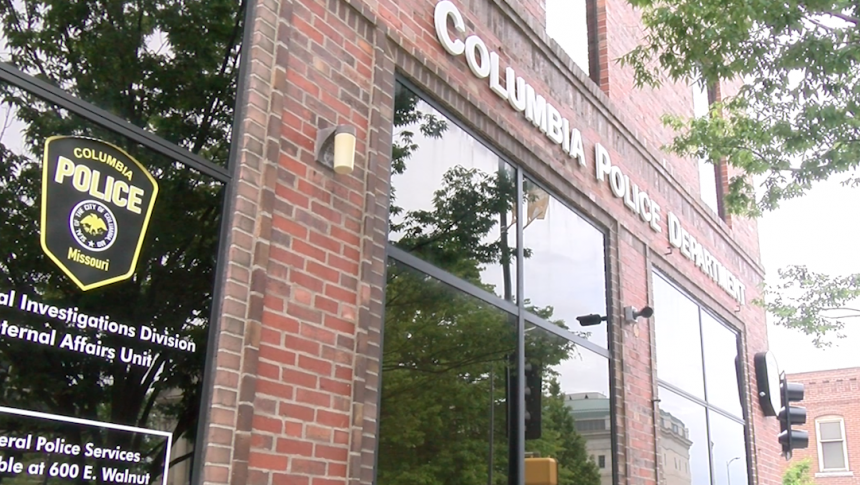CPOA asks to remove Citizens Police Review Board member over social media comment on group’s president

Ryan Shiner
EDITOR’S NOTE: Doug Hunt’s full comments to the board have been added to the story.
COLUMBIA, Mo. (KMIZ)
The Columbia Police Officers’ Association is asking the Citizens Police Review Board to remove one of its members over a social media comment that appeared to criticize the CPOA’s president.
The CPRB plans to discuss the issue at its regular meeting scheduled for 6 p.m. Wednesday. The CPOA sent a letter on Oct. 27 asking the CPRB to remove Stephanie Yoakum after a screenshot appeared to show a Facebook comment where she criticized the behavior of Matthew Nichols, who also works as a Columbia police sergeant.
A probable cause statement in a misdemeanor prosecution case filed earlier this month that was written by Nichols described that he touched the defendant’s breasts during a sting.
A comment on a Facebook thread by Yoakum alleged it was “on-brand” for him. A second comment by Yoakum accused him of running a “local hate group page.”
A letter from the CPOA’s attorney Donald Weaver accuses the comment of violating “The Code of Ethics of the National Coalition on Civilian Law Enforcement,” and that “Yoakum has access to confidential material related to CPD internal investigation and the conduct of police officers.” Weaver also called allegations that Nichols helps run the Facebook page “The Real Columbia Missouri” false.
Yoakum is the board’s representative from the city’s Human Rights Commission. She responded with a letter of her own, and made several defenses, including that personal speech is protected and the comments were based on public information.
“I strongly believe this request represents a profound misunderstanding of the independence and fortitude required for effective civilian oversight,” Yoakum wrote in her letter. “Furthermore, it is a clear attempt to censor a board member’s participation in public discourse as a citizen and intimidate oversight practitioners. My comments are expressions of personal opinion and political belief, grounded in my community and personal experience, not official findings or statements made on behalf of the CPRB.”
CPRB member Doug Hunt wrote in a Nov. 12 email obtained by ABC 17 News that he planned to ask the board to take “no official action on the matter at this time.” Hunt wrote that Weaver’s allegation was not a “persistent failure” on Yoakum’s part to perform her duties, or even a failure of her duties at all.
2025_10_27_CPOA_Complaint_RE_CPRB_Board_Member_YoakumDownload
Here is the full text of Hunt’s comments to the board:
On October 27 the attorney for the Columbia Police Officers Association sent a letter requesting that this Board recommend the removal of a member who participated in an online discussion in which a Columbia police officer was accused of inappropriate behavior.
The attorney’s letter offers two arguments for the removal. First, that when a CPRB member publicly accuses an officer of misconduct, people might assume that the accusation is based on confidential information to which the Board member had access.
Second, that posting the comments violated the National Association of Civilian Oversight of Law Enforcement’s Code of Ethics, which code CPRB members are required to adhere to.
The CPOA’s request creates a delicate situation for the Board, since public discussion of the dispute might damage the reputation of the officer involved, or the board member, or both. For that reason, I hope we can avoid naming names or giving other identifying information this evening.
At this point, I’m going to give my personal view on how we should respond to the CPOA’s request, and then invite other Board members to do the same.
Here’s the way I see it. In the ordinances that govern our Board, there is a sentence giving us authority to recommend the removal of a member. Here it is: “The board may recommend to the city council that a board member be removed from the board if the member persistently fails to perform the duties of office.”
In this case, the CPOA attorney has not accused the board member of a persistent failure to perform the duties of office. He has pointed to a single incident. And so our authority to act is blocked by the word “persistent.”
In addition, it isn’t clear that this incident amounted to a failure to do the duties of office.
The duties of the board are specifically listed in Section 21-49 of the ordinance. They have to do with reviewing complaints, hearing appeals, and submitting annual reports. Nothing in the CPOA letter indicates a failure to participate in the execution of these duties.
The CPOA’s letter suggests that the social media post violated the Code of Ethics of the National Coalition on Civilian Law Enforcement, which members are obliged to follow. But the Code offers only very general guidelines for board members. It says, for instance, that we are to “pursue open, candid, and non-defensive dialog with our stakeholders” and to “educate and learn from the community.”
These are, as the preamble to the Code makes clear, very general and aspirational guidelines. They are intended to express the spirit in which we will serve, not descriptions of particular actions that are required or forbidden. Using such aspirational guidelines to justify ejecting someone from the Board is clearly problematic.
It may be that the City should modify our ordinances to include a more specific statement that board members are to refrain from publicly criticizing either police officers or citizens who complain about police officers. At this point, however, there is no such explicit statement.
All things considered, it appears that the Board would be exceeding its authority by recommending the removal of this member. Therefore, my inclination would be to take no official action on the matter at this time.